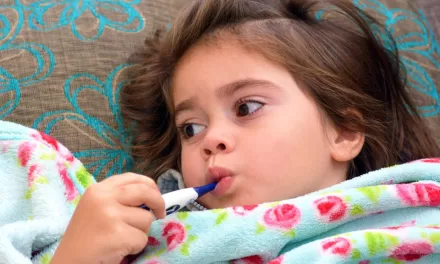Zurich, Switzerland – June 16, 2024 – A pivotal study has revealed that odors significantly influence brain development in newborns, especially within the first week of life. This finding underscores the importance of early sensory experiences in shaping brain circuits and could have profound implications for neonatal care.
Early Sensory Development
The initial week after birth is crucial for the development of sensory systems in newborn mammals. Smell and touch are among the first senses to develop, allowing newborns to nurse and bond with their mothers. Defects in these senses can lead to various neurodevelopmental disorders in humans.
“Our senses are crucial for the proper formation and functioning of brain circuits,” noted Professor Theofanis Karayannis, co-director of the Brain Research Institute at the University of Zurich (UZH).
Impact of Odors on Newborn Brains
While previous research has highlighted the role of sensory input in the development of corresponding senses, little was known about the influence of one sense on the maturation of another. To address this gap, a research team led by Professor Karayannis explored the effects of olfactory stimuli on the brains of newborn mice.
The researchers delivered a pleasant odor to the nostrils of newborn mice and mapped the resulting brain activity using advanced imaging techniques. They observed that odors triggered neural activity across a large part of the cerebral cortex, including areas responsible for touch.
“Using anatomical and functional approaches in mice, we reveal that odor-driven activity propagates to a large part of the cortex during the first postnatal week and enhances whisker-evoked activation of primary whisker somatosensory cortex,” the study authors noted.
A Critical Window After Birth
This phenomenon was observed within the first week after birth. In older pups and adult mice, odors affected more restricted areas of the brain. “This clearly shows that olfactory input in the first postnatal week induces a special pattern of electrical activity in the brain. This indicated to us that it may be essential for the formation of brain circuits for non-olfactory sensory processing,” explained Professor Karayannis.
The Link Between Smell and Touch
To test their hypothesis, the team investigated whether early olfactory stimulation is crucial for the maturation of the sense of touch. They trained adult mice to distinguish between fine and coarse sandpaper touching their whiskers. The researchers found that mice deprived of olfactory input in their first week performed significantly worse than those exposed to odors.
“A deficiency in olfaction during the critical window of time also affects touch processing in later life,” noted Professor Karayannis.
Early Sensory Interactions and Brain Anatomy
The transient functional interaction between smell and touch was evident in the brain’s anatomy. During the first week of life, researchers detected a string of nerve connections between the brain areas processing smell and touch. This link disappeared within a few weeks.
“Our study demonstrates that early-life exposure to odor is essential for touch development and maturation,” said Professor Karayannis. “This finding perhaps extends to other senses such as hearing or sight, which mature later in life.”
Although the experiments were conducted with newborn mice, previous findings suggest similar processes occur in the human brain. Sensory deficits can result from genetic alterations or environmental factors.
“Our findings raise attention to assessing the impact of olfactory deficiencies, especially early in life, on the maturation of general sensory and cognitive processing,” added Professor Karayannis.
Potential Benefits of Odor Therapy in Newborns
One practical implication of this research relates to premature babies in neonatal intensive care units (NICUs), where they are often deprived of a normal sensory environment. This deprivation can potentially have long-term cognitive and emotional effects.
“While hospitals aim to provide optimal tactile, auditory, and visual stimuli to these babies, the sense of smell is not as widely used,” said Professor Karayannis. “Our results suggest a mechanism by which proper olfactory cues may positively support the development of various sensory and cognitive skills in babies.”
The study emphasizes the crucial role of early sensory experiences in the proper development of brain circuits, highlighting the need for a holistic approach to sensory stimulation in early life, particularly for vulnerable populations such as premature infants.
The study is published in the journal Science.











